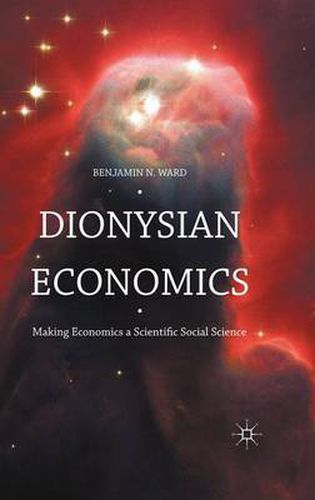Readings Newsletter
Become a Readings Member to make your shopping experience even easier.
Sign in or sign up for free!
You’re not far away from qualifying for FREE standard shipping within Australia
You’ve qualified for FREE standard shipping within Australia
The cart is loading…






This title is printed to order. This book may have been self-published. If so, we cannot guarantee the quality of the content. In the main most books will have gone through the editing process however some may not. We therefore suggest that you be aware of this before ordering this book. If in doubt check either the author or publisher’s details as we are unable to accept any returns unless they are faulty. Please contact us if you have any questions.
Nietzsche distinguished between two forces in art: Apollonian, which represents order and reason, and Dionysian, which represents chaos and energy. An ideal work of art combines these two characteristics in a believable, relatable balance. Economists, Ward argues, have operated for too long under the assumption that their work reflects scientific, Apollonian principals when these simply do not or cannot apply: constants in economics stand in for variables, mathematical equations represent the simplified ideal rather than the complex reality, and the core scientific principal of replication is all but ignored. In Dionysian Economics, Ward encourages economists to reintegrate the standard rigor of the scientific method into their work while embracing the fact that their prime indicators come from notoriously chaotic and changeable human beings. Rather than emphasizing its shortfalls compared to an extremely Apollonian science, such as physics, economics can aspire to the standards of a science that accounts for considerable Dionysian variation, such as biology. The book proposes that economists get closer to their dynamic objects of study, that they avoid the temptation to wish away dynamic complexity by using simplifying assumptions, and that they recognize the desire to take risks as fundamentally human.
$9.00 standard shipping within Australia
FREE standard shipping within Australia for orders over $100.00
Express & International shipping calculated at checkout
This title is printed to order. This book may have been self-published. If so, we cannot guarantee the quality of the content. In the main most books will have gone through the editing process however some may not. We therefore suggest that you be aware of this before ordering this book. If in doubt check either the author or publisher’s details as we are unable to accept any returns unless they are faulty. Please contact us if you have any questions.
Nietzsche distinguished between two forces in art: Apollonian, which represents order and reason, and Dionysian, which represents chaos and energy. An ideal work of art combines these two characteristics in a believable, relatable balance. Economists, Ward argues, have operated for too long under the assumption that their work reflects scientific, Apollonian principals when these simply do not or cannot apply: constants in economics stand in for variables, mathematical equations represent the simplified ideal rather than the complex reality, and the core scientific principal of replication is all but ignored. In Dionysian Economics, Ward encourages economists to reintegrate the standard rigor of the scientific method into their work while embracing the fact that their prime indicators come from notoriously chaotic and changeable human beings. Rather than emphasizing its shortfalls compared to an extremely Apollonian science, such as physics, economics can aspire to the standards of a science that accounts for considerable Dionysian variation, such as biology. The book proposes that economists get closer to their dynamic objects of study, that they avoid the temptation to wish away dynamic complexity by using simplifying assumptions, and that they recognize the desire to take risks as fundamentally human.